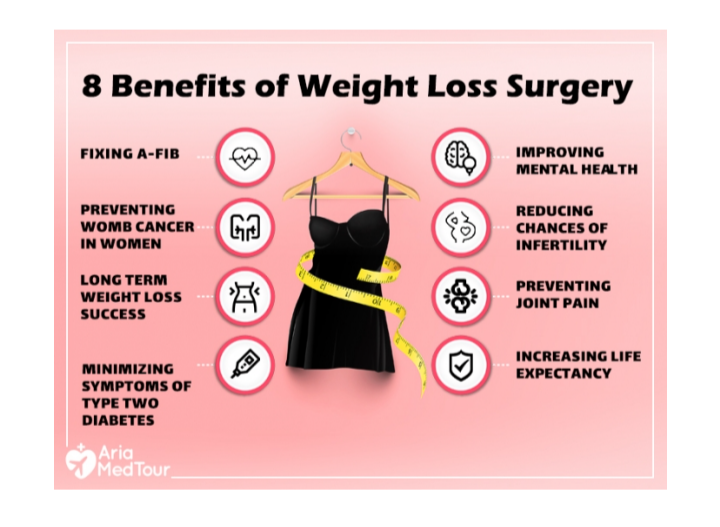The 5 Stages of Change for Successful Weight Control
As an Amazon affiliate I earn from qualifying purchases at NO extra cost to you.
Your journey toward embracing a healthier, sustainable lifestyle an exciting but challenging endeavor. Whether you aim to shed a few pounds or adopt a more balanced diet, understanding the 5 stages of change for successful weight control greatly enhances your chances of success.

In this blog, we’ll explore how individuals progress from precontemplation to maintenance and delve into practical strategies for managing setbacks and cravings. So, grab a relaxing cup of tea, get comfy, and let’s navigate this transformative path together.
Remember, change is never easy, but armed with knowledge and a friendly community, you can overcome any obstacle that comes your way. Let’s dive into the 5 stages of change for successful weight control. https://youtu.be/nnhiq8BW2p4
Step 1: Precontemplation
Precontemplation marks the initial stage of your weight management journey, where you may not yet recognize the need for change or fully understand the impact of your current habits on your well-being. It’s normal to underestimate the importance of managing cravings and setbacks during this phase.
Approaching precontemplation requires self-compassion and a non-judgmental mindset. Take the time to gather information about the benefits of weight loss and learn strategies for managing cravings and setbacks. While it’s essential to be open to change, remember that you control your journey and should proceed at your own pace.
Focus on actively listening to your inner thoughts and feelings, and engage in honest conversations with yourself. Create a safe space to explore any ambivalence and uncover your motivations. Embrace the understanding that weight loss is a unique and individual process. With self-empowerment and determination, you can take the next step when ready. This is the beginning of your transformative path toward a healthier lifestyle. more about Weight Loss
Step 2: Contemplation
The contemplation stage of change is crucial in the journey toward weight loss and managing cravings or setbacks. During this stage, individuals acknowledge the need for change and weigh the pros and cons of their current behaviors. It is a period of self-reflection and evaluation, where people become aware that their and eating habits impact their overall well-being.
Contemplation involves considering various approaches and strategies to achieve one’s goals. It may require researching different diets and exercise routines or seeking professional guidance. Individuals in this stage often contemplate the long-term benefits of weight loss like improved health and self-confidence, while acknowledging the challenges and potential setbacks they may encounter.

This stage is also a foundation for developing effective coping mechanisms in managing cravings or setbacks. Individuals reflect on their triggers, emotional connections to food, and behavior patterns.
They may explore techniques like mindfulness, journaling, or seeking peer or professional support to better understand and manage their cravings or setbacks.
The contemplation stage signifies a significant step towards change as it sets the groundwork for making informed decisions and developing strategies that align with personal goals and values. It provides a platform for individuals to gather knowledge, introspect, and mentally and emotionally prepare for the upcoming challenges on their weight loss journey.
Step 3: Preparation
Preparation is critical in the change process, especially when achieving weight loss goals. During this phase, individuals actively plan and organize themselves to initiate the desired changes. It involves setting specific goals, creating action plans, and gathering necessary resources to support the journey.
Preparation might include designing a structured meal plan, creating an exercise routine, and establishing a supportive environment. This stage often involves educating oneself about healthy eating habits, portion control, and the benefits of physical activity. Individuals may also seek guidance from healthcare professionals or join support groups to gain valuable insights and encouragement.
Preparation is not limited to the practical aspects alone. It also involves cultivating a positive mindset and addressing potential obstacles. This might include identifying and managing emotional triggers, Weight Control, developing strategies to deal with cravings, and adopting healthy coping mechanisms.
You may struggle with other issues such as mental un-wellness, family conflict, emotional abuse or even being effected by narcissism. Whatever, the case may be, I got you covered.
Overall, the preparation stage serves as a solid foundation for success. It equips individuals with the tools, knowledge, and motivation to embark on their weight loss journey and confidently navigate challenges. By investing time and effort in this phase, individuals increase their chances of achieving long-term sustainable changes and reaching their desired goals.
Step 4: Action
The action stage is a pivotal phase in the change process, where individuals put their plans into motion and actively engage in behaviors that support their goals.

This involves implementing the strategies and practices outlined during the preparation phase and may include following a structured meal plan, engaging in regular physical activity, and adopting healthier lifestyle habits. Individuals in this stage often experience increased motivation and determination to make positive life changes.
Taking action requires discipline and consistency. It involves making conscious choices and actively practicing new behaviors. This stage may also include overcoming challenges and staying committed despite setbacks or temptations.
In the action stage, individuals begin to see tangible results and start experiencing the benefits of their efforts for Weight Control. It is a period of growth and transformation, both physically and mentally. By maintaining focus and perseverance, individuals can build positive momentum and continue progressing toward their weight loss goals.
Step 5: Maintenance
The maintenance stage involves sustaining the progress made during the action stage and integrating new behaviors into one’s daily life long-term. During this stage, individuals focus on consolidating their achievements, preventing relapse, and ensuring that the positive changes become lasting habits.
This requires ongoing commitment, self-monitoring, and regular evaluation of progress. Maintenance also involves adapting to new challenges, refining strategies as needed, and seeking support from peers or professionals when necessary. It is a stage of continued growth and resilience, where individuals strive to maintain their weight loss success and overall well-being.
Tips for Weight Control and Management
Remember that change takes time and effort. It’s essential to be patient and persistent. With determination, a positive mindset, and a proactive approach, you can overcome the challenges that come with change and achieve your desired outcomes. Some tips to stay consistent include:
1. Set realistic goals
Break your overall goal into smaller, achievable milestones. This will make the change process more manageable and increase your chances of success.
2. Find a support system
Surround yourself with supportive friends, family, or a community that shares similar goals. Their encouragement and accountability can help you stay motivated and overcome challenges.
3. Stay positive
Adopt a positive mindset and focus on the progress you’ve made rather than dwelling on setbacks. Embrace mistakes as learning opportunities and celebrate small victories along the way.
4. Be flexible and adaptable
Accept that change is a process and that adjustments may be necessary. Stay open to alternative strategies or approaches that can help you overcome obstacles.
5. Practice self-care
Prioritize self-care activities including sleeping well, managing stress, and participating in activities that you enjoy. Taking care of your overall well-being will boost your resilience and make change easier.
6. Learn from setbacks
When faced with setbacks, analyze what went wrong and identify strategies to prevent similar obstacles in the future. Use setbacks as motivation to refine your approach and continue moving forward.
7. Celebrate progress
Acknowledge and reward yourself for the progress you make along the way. Treat yourself with kindness and celebrate milestones to stay motivated and committed to the change process.
8. Seek professional guidance if needed
If you’re struggling to overcome specific challenges, don’t hesitate to seek guidance from a healthcare professional, therapist, or coach who can provide expert advice and support. Let nothing stand in your way. Whether it be current circumstances, family-related hiccups, emotional abuse or narcissistic personalities. This is your time to reverse engineer your setbacks. You are in control.
Manage Your Weight Control Today
Navigating the stages of change requires dedication, self-reflection, and the willingness to face challenges head-on. Whether it’s weight loss, managing cravings, or any other transformation, each stage plays a vital role in the journey. From contemplation to preparation, action to maintenance, and overcoming challenges, success is possible with perseverance and a supportive mindset.
Remember, change is a process, and setbacks are growth opportunities. You can overcome obstacles and embrace lasting change by staying committed, seeking support, and staying focused on the end goal.

References
- Prochaska, J. O., & DiClemente, C. C. (1982). Transtheoretical therapy: Toward a more integrative model of change. Psychotherapy: Theory, Research & Practice, 19(3), 276-288. doi:10.1037/h0088437. Available at: https://clinmedjournals.org/articles/jowm/journal-of-obesity-and-weight-loss-medication-text=Five stages of change were,level until achieving behavioral consistency
- University of Rhode Island. (n.d.). Stages of Change – Short Form. Retrieved from https://web.uri.edu/cprc/measures/weight-control/stages-of-change-short-form/
- Estabrooks, P. A., & Carron, A. V. (1999). The Physical Activity Group Environment Questionnaire: An instrument for the assessment of cohesion in exercise classes. Group Dynamics: Theory, Research, and Practice, 3(2), 230-243. doi:10.1037/1089-2699.3.2.230. Available at: https://www.ncbi.nlm.nih.gov/pmc/articles/PMC7216547/






I like your emphasises on the need to understand the impact of your current habits and set realistic goals. It was one of my challenges with my wife when I wanted her to start the weight management journey. She eat everything that come her way and did not see it as a reason for her weight gain. It took some time before we started weight management. But I had to make her how much her habit could cost us.
Hi there, Parameter.
I went through the same thing as your wife. Sometimes we do emotional eating, not realizing the consequences. However, there is light at the end of the tunnels for us. It is all a matter of making up the mind to make a total lifestyle change. It has taken me many years to realize that I can “eat to live” versus “live to eat.”
At the end of the day, Owoeye, successful weight control is all about making better choices.
Thank you for your supportive comments and have a wonderful week.
Rachele